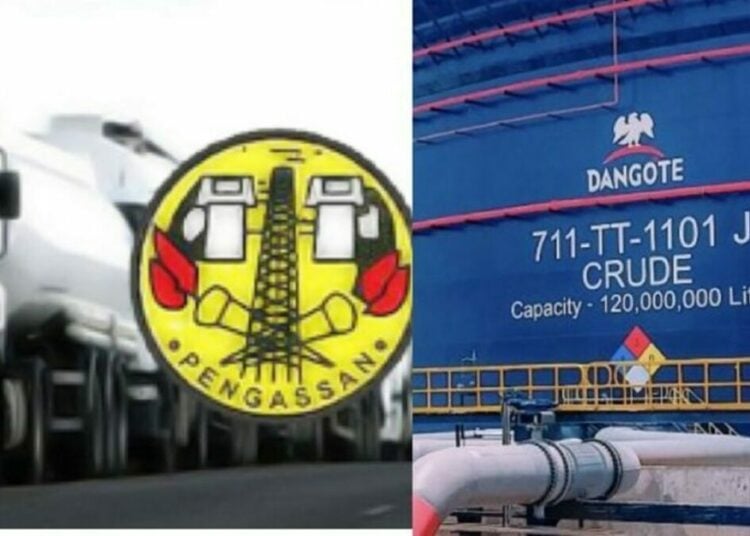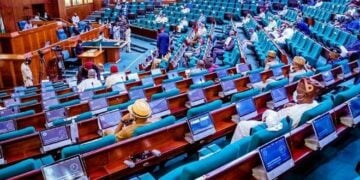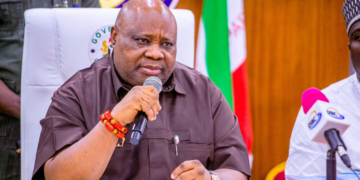The House of Representatives has resolved that its leadership under Speaker Abbas Tajudeen will intervene in the dispute between Dangote Refinery and Petroleum and Natural Gas Senior Staff Association of Nigeria (PENGASSAN).
This was sequel to the adoption of a motion of urgent public importance (as amended), moved by Hon. Alhassan Ado-Doguwa (APC, Kano) and Hon. Abdulssamad Dasuki (PDP, Sokoto) at plenary on Tuesday.
Moving the motion, Doguwa said the recent face-off between PENGASSAN and Dangote Refinery, located within the Lekki Free Trade Zone culminated in a strike that disrupted operations at the $20 billion refinery which is the largest single train refinery in the world.
The former House leader noted that the industrial action led to a disruption in Nigeria’s crude oil production with a reported daily loss of approximately 200,000 barrels over a period of three days.
He also noted that the disruption worsened the fuel supply situation across the country, resulting in scarcity and long queues at filling stations in several states, thereby causing hardship for ordinary Nigerians.
Doguwa said Dangote Refinery is a strategic private investment of immense national importance, with the potential to guarantee energy security, reduce import dependency, generate employment, and conserve foreign exchange.
He argued that; “the Dangote Refinery operates within a Free Trade Zone, and therefore falls under the regulatory framework of the Nigeria Export Processing Zones Authority (NEPZA) particularly Section (5) of Nigeria Export Processing Zones Act which clearly states.
“Employment in the Free Zone shall be governed by rules and regulations made by the Authority and not Subject and not subject to the Provisions of enactments relating to employment matters.”
Doguwa expressed concern that; “actions by labour unions that disregard the legal protections conferred On Free Zones under NEPZA Act not only constitutes a breach of law but also create a hostile investment environment that may deter future local and foreign investors.
“If private investment of strategic national importance are continually subjected to unlawful disruptions by adversarial unionism, Nigeria risks not only the failure of key economic assets but also the erosion of investor confidence necessary for national growth and development.”





